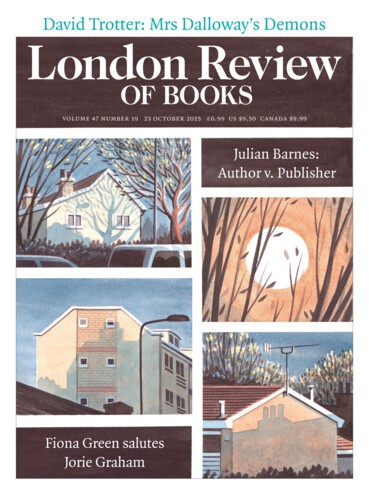Mrs Dalloway’s Demons
David Trotter
There’s no shortage of advice for anyone who wishes to sample the work of one of the most widely admired 20th-century writers. The literary genres Virginia Woolf mastered during a career cut brutally short include the novel, short story, essay, biography, memoir, letter and diary. Authoritative texts of everything she wrote have been assembled with (for the most part) exemplary...


